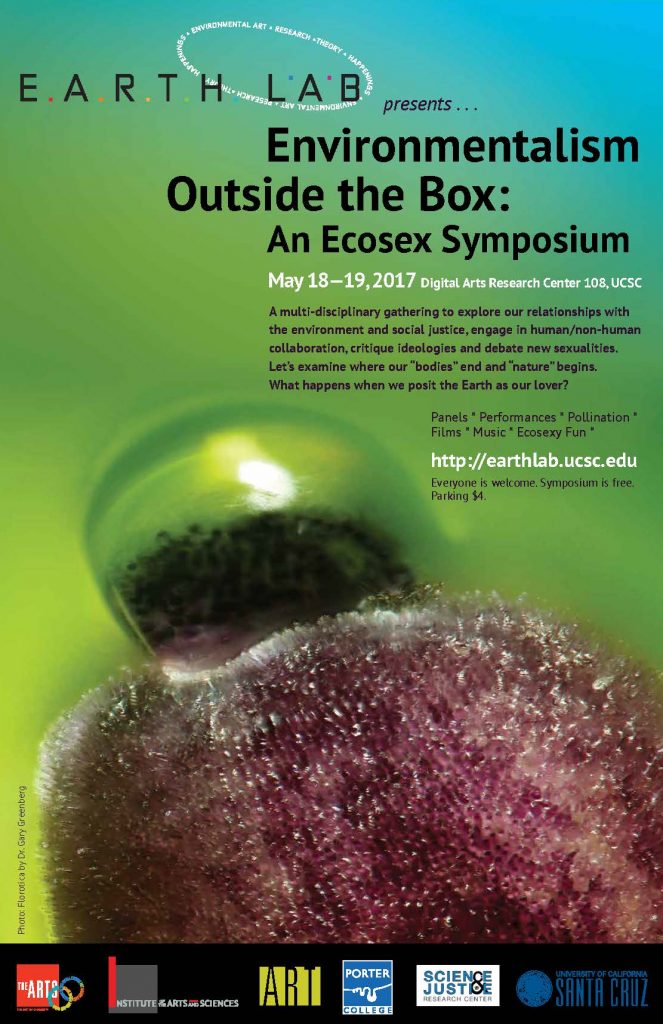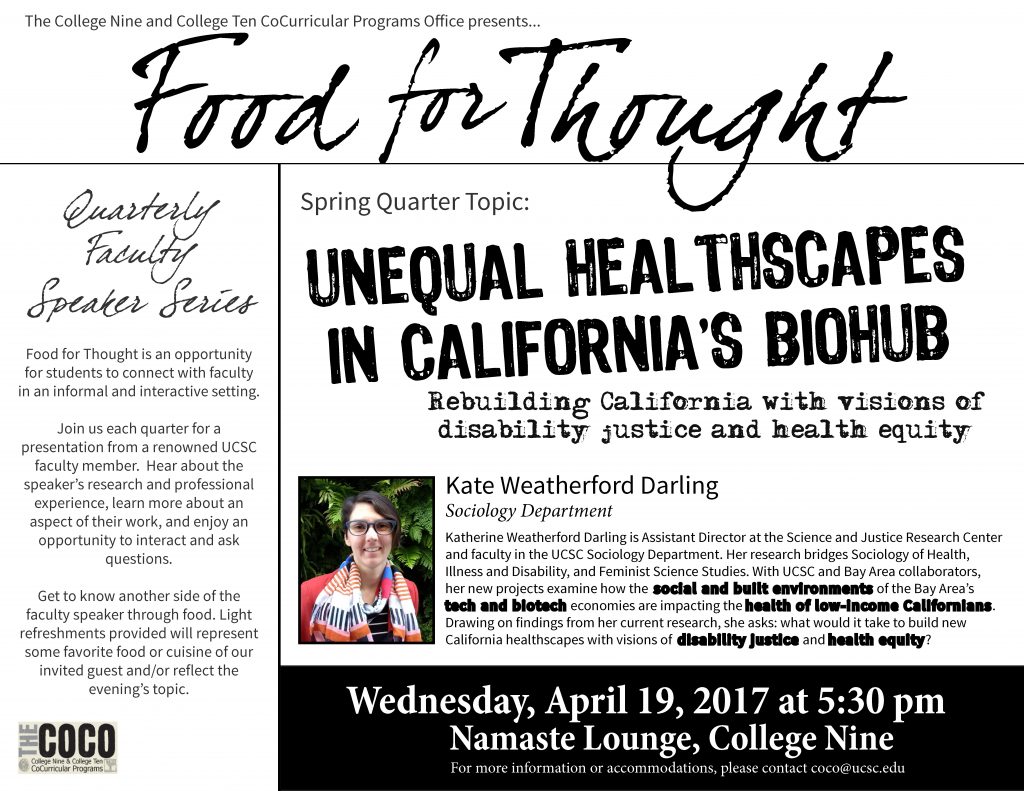A multi-disciplinary gathering to explore our relationships with the environment and social justice, engage in human/non-human collaboration, critique ideologies and debate new sexualities. Let’s examine where our “bodies” end and “nature” begins. What happens when we posit the Earth as our lover?
Schedule to include keynotes by Kim TallBear (Professor of Indigenous Studies, University of Alberta) on Decolonizing Settler Sexuality and Chris Cuomo (Professor from University of Georgia) on Race and Environmentalism, a post screening conversation with Donna Haraway following feature film Story Telling for Earthly Survival and panel discussions with Joe Dumit (Professor of Anthropology and Chair of Performance Studies, UC Davis), Beth Stephens (Professor of Art, UCSC), Lisa Rofel (Professor of Anthropology, UCSC) and Cleo Woelfle-Erskine (S&J UC President’s Postdoctoral fellow).
Symposium is free. Parking is $4.
See schedule at https://earthlab.ucsc.edu/ecosex-symposium/
May 18-19, 2017 | All Day | Digital Arts Research Center, DARC 108





 2016 marks 30 years of disability and cinema. Superfest, the world’s longest running disability film festival, celebrates disability as a creative force in cinema and culture. It features films with fresh ideas and images that inspire thought and meaningful conversation. Times and locations for the 2016 film selections can be found
2016 marks 30 years of disability and cinema. Superfest, the world’s longest running disability film festival, celebrates disability as a creative force in cinema and culture. It features films with fresh ideas and images that inspire thought and meaningful conversation. Times and locations for the 2016 film selections can be found 